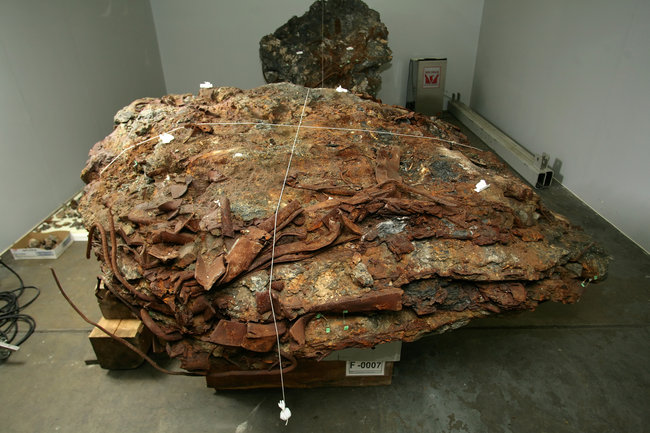“He didn’t know what was defeating him, but he sensed it was something he could not cope with, something that was far beyond his power to control or even at this point in time comprehend.” –Hubert Selby Jr.
The Wrongologist has changed the blog’s “Quotes We Like” sidebar to add the quote above. The quote is from Selby’s Requiem for a Dream. He also wrote Last Exit To Brooklyn. These are two gritty American novels of their time and place. Exit was published in 1964 and presents a view of 1950’s Brooklyn NY. Requiem was published in 1978. Both were made into movies. Selby died in 2004.
In a Salon article in 2000, Selby is quoted about Requiem:
The dream I’m referring to in the book, of course, is the great American dream: prosperity, property, prestige, etc. And the fact that it’ll kill you dead. Striving for it is a disaster. Attaining it is a killer. It takes many forms, and the results are not happy. It’s not a feel-good thing
Selby continues:
‘Requiem’ is about the cancer of that dream…Of course, there are a lot of people who are successful who work very hard. They’re not all George W. Bush. But the point is they’re misguided. That’s not what life is about. We believe, probably more than anywhere, that life is getting all this material stuff. It’s a case of misguided ambition and desire
We can take this further. Today, America doesn’t know what is defeating it. America senses that it can’t cope, that there are things happening that are beyond our control or comprehension:
• We can no longer solve our domestic problems
• We are powerless to deal with the Malaysian airline disaster in Ukraine
• We can’t resolve the tri-partite struggle in Iraq
• We can no longer restrain Israel in its non-proportional response to Hamas
• We are no longer on the same side as our long-term Middle East allies, Saudi Arabia and Egypt
• We can’t figure out a non-military response for China’s initiatives throughout Asia
In fact, we no longer have a non-military response to any foreign problem. The power strategies that we employed throughout the 1950’s, continuing down to the end of the Soviet Union no longer work. Back then, we played chess, moving pieces across the board. We used whichever proxies or allies were at hand, we overthrew elected governments, thereby violating our own ideology. We supported and installed dictatorial governments. We promised freedom and prosperity, while helping to deliver hegemony, based on our military intervention, or the threat of it.
Today, we have no answers, only posturing from all of our leaders. We have become the kind of people who criticize, not the kind of people who can solve problems.
We are no longer king-makers in the third world, the neo-conservative approach of use of military power cannot stand in the face of asymmetric warfare and the devastating superiority of IEDs to up-armored military vehicles.
From Ian Welsh:
Deny the fruits of western ideology to those who reach for them, and of course they will turn against you. Pervert them even within your own countries by undermining your own democratic principles and by concentrating wealth and income in the hands of a few, while impoverishing the many; make it clear that modern neo-liberal capitalism doesn’t spread prosperity to even the core nations, and you have set up one of the preconditions of not just hegemonic collapse, but of internal collapse of a civilization
And here is Welsh’s money quote:
People who do not believe in the genuine goodness of what they are fighting for, hardly fight for it at all
That is what we see in Iraq. More importantly, that is what we see in America. Today, no one believes in the genuine goodness of what they are fighting for, be they job-hunting Millennials, unreconstructed 1960’s liberals, or today’s money-grubbing Republican and Democrat politicians.
When you no longer know how to solve problems, you turn to what is easy. You buy the next shiny object, you live through the lives of the rich and famous. Snark and incivility replace facts and discussion.
There was a display in the 9/11 Museum that showed a piece of debris about 3’ high by 6’ wide and 12’ long. It was rusty and seemed to be sedimentary in nature, visibly comprised of metal, concrete, and wires. It is actually part of 5 floors of the Trade Center, compressed by weight and softened by intense heat. Nothing of the desks, computers, phones and people are distinguishable in this artifact. The Museum calls it a “composite”. It brings home the destructive power of the falling towers on 9/11:
Photo is from before the “composite” went on display
After the Towers’ fall, the news media said that 9/11 changed everything, and we believed it. But changes to our view of the world, and its view of us, had started long before that. We stopped learning about geopolitics in the 1960’s, substituting false analogies and military aid to local strongmen for true knowledge of how to change the world.
Since then, we have been compressed by the heat and weight of events we cannot understand. If you think about it, our decline after 9/11 came because we panicked, spent all of our money on pointless wars, and gave up our core values in the name of an illusion of safety, and pure vengeance.
So, yes, America doesn’t know what is defeating it. America senses that there are things happening that are beyond its control or comprehension.
But these things are knowable, and fixable. Hopefully, by Americans.


I think the chess moves that we made decades ago were less effective then we thought (we and the USSR created the dueling militias in Africa, and the drug gangs in central American). So maybe we need to accept that there is often both no military AND no non military solution.